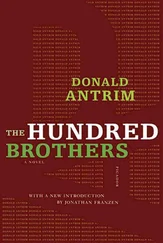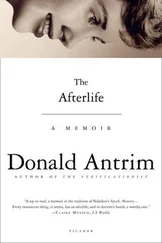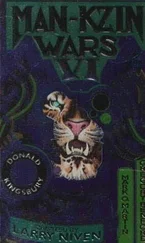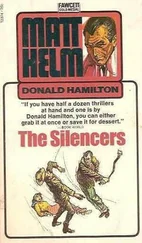I set out crawling. My progress is slow. The ground is cold. I keep my back low; it is best if I do not use my legs in any way; rather, I prefer to drag them behind me, because I have lost feeling in my feet. My body seems to end at some undetermined point below the hips. Yet I have weight. I clutch folds of blue tablecloth in my hands, plant my elbows, and, keeping in mind the restrictions imposed by Richard’s hug — for I remain, even while snaking across the mound, effectively trapped back at the Pancake House & Bar, a prisoner, straitjacketed in Bernhardt’s embrace — I work myself forward. Rocks scrape me as I pass over the cloth. I will surely have bruises. I feel that I am scaling a mountain or a lengthy, graded hill, which in a fashion I am; the burial mound forms a rounded slope that, for a legless man, becomes a challenging and demanding ascent. I am like a soldier maimed in battle, worming toward safety and trying not to die. This imagery of disablement is not inappropriate, I think, given the history of the location; given, as well, my physical situation vis-à-vis Bernhardt, etc., that night at the Pancake House. Out here in Battlefield Grove, my comprehension of safety — this for reasons having more to do with solace than with sex — is bound up with reaching Rebecca. As I squirm toward the vanishing girl, I describe to her, in a loud voice that I can only hope she hears, events as they took place in the winter of 1775, the Incident on the Mound.
“The British artillery company unlimbered their big muzzle-loaders and positioned them on the hillsides. The Americans were asleep in their tents. English infantry filed down the hills and assembled ranks. It was customary in that age for attacking armies to progress while firing at the enemy from overlapping lines, one kneeling and one standing, in broad daylight, while wearing bright jackets.”
Sticks and rocks abrade my elbows. My back is bathed in a warm, excruciating pain.
I struggle up the mound. I can no longer see Rebecca. The mist has shrouded her; night draws toward dawn, and dew on grass under the tablecloth soaks through. My clothes are drenched.
“At daybreak the English cannon opened fire. Kablam! Kablam! ”—here I pause, after making the slightly ridiculous, expletive cannon sounds, to cough a few times. “The noise was deafening. Explosions echoed from hill to hill. Flashes from the gun barrels lit the sky. Cannon shot flew through the air toward the helpless Americans.”
“What happened?” asks the disembodied, excited voice of Rebecca. I am glad to hear her. She can’t be far away.
“The artillery roared. The infantry advanced. Suddenly a thick fog settled over the land.”
“Like the fog now?” asks Rebecca from somewhere inside the dense, ground-level clouds.
“Yes. A fog came down, a fog like this one, obscuring the mound and the colonial soldiers.”
“Wow.”
“The English artillery fired and fired, but not a single shot found its target. The infantry fixed bayonets and charged, but at the last instant became confused in the mist and went astray to the south. Each man lost contact with the man next to him. Panicked regulars struck out at whatever moved. A blind skirmish took place. Redcoats attacked redcoats. I know because I was there. I played the role of the drowned lieutenant one year during the winter battle reenactment.”
“You did?” asks Rebecca, suddenly perking up. “My father used to participate in the enactments. He stopped doing it when I was eleven.”
“Your father? How about that. What army was your father in?”
“British, like you. That depressed him. Dad never, ever talks about the battle. He had a bad experience.”
“What happened?”
“Somebody stabbed him with a bayonet.”
“Hmm.”
“What’s wrong?”
What to say? What to do? Tell the truth and endure the consequences? Act like nothing is amiss, and risk later disclosures of crucial, compromising omissions?
I take the high road, like a man. “I don’t quite know how to tell you this, Rebecca, but — let me think about the right way to say this — uh, if your father is who I think he is, what I’m trying to say is, I may have — how do I want to put this? — I may have accidentally bayoneted him.”
“Oh my God.”
“Rebecca, I’m sorry. I didn’t mean to do it. Please try to understand. We didn’t have any rehearsals. The whole reenactment was miserably organized. I hate guns.”
“You bayoneted my father?”
“It was an accident. We ran into each other and my gun was pointed the wrong way and the bayonet got in the way and he got cut.”
“You bayoneted my father. Oh my God. You bayoneted my father.”
“I feel terrible about this, Rebecca.”
“I can’t believe it. You bayoneted Dad! And I trusted you,” declares the girl — brilliantly commandeering, in the way offended people so frequently will, events that occurred years in the past, using them as retrospective evidence pertaining to present circumstances.
I have nothing to say to this illogical formulation except the tried and true “Can you forgive me? Rebecca? Can you find it in your heart to forgive me?”
“I trusted you!”
A moment passes while no one speaks and I wait to learn which way the wind blows. During this time I am able to ponder the significant implications. For better or for ill, Rebecca and I are bonded through the wounds of her father. It is not unheard-of for people to develop strong attachments to those who have harmed them, or, as in the current instance, to those who injure their loved ones.
With this in mind, and in order to take command of the situation, I ease into a calm and professional, sympathetic mode. “It must have been difficult for you, at such a young age, to see your father walk in the door all smeared with his own blood.”
“It was. It was awful. I thought he was going to die,” she remembers, quietly; and I coach her to observe these feelings and her childhood memories. “I’ll understand if you’re angry with me, Rebecca. I don’t want to stand in the way of your sorrow.”
“When Dad came home from the war, I cried and cried. He said he was fine and there was nothing to worry about, but I thought he was only telling me that so I wouldn’t be sad about him dying.”
Dying?
“Let me get this straight. Are you saying that the fact that your father was not dying convinced you he was?”
“What?” she says. Then, presumably, the semantics of the question sort themselves out in her head, and she answers, “I guess that’s right. It doesn’t make much sense, does it?”
“It makes perfect sense.”
“I cried all night long.”
“Do you feel like crying now?”
“No, why would I cry now? That’s silly. I was eleven years old. I don’t want to cry now.”
I can’t see Rebecca, though I can hear her, through the mist, breathing. I choose my next words with care. “Sometimes people bottle up their feelings, and years go by, and those repressed feelings can cause neurotic depressions and resentment.”
“Oh, please. Don’t be so condescending. I’m not one of your patients.”
“I just thought I’d mention it.”
“Dad wasn’t hurt badly. Everything was better in the morning. He let me help with his bandages.”
“How nice for both of you,” I say to her. It’s a tactical error, and I am immediately aware of it as such; I sound petulant and mean — I am petulant and mean. She of course hears the jealousy in my voice. “You’re mad at me, aren’t you?” she says.
“No,” I lie.
“Why are you mad at me ? I’m not the one who goes around sticking people with bayonets. You want me weepy like a little girl, because you can’t deal with me as a woman.”
Читать дальше












